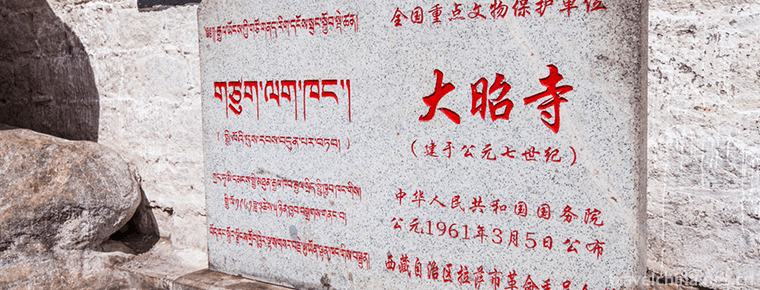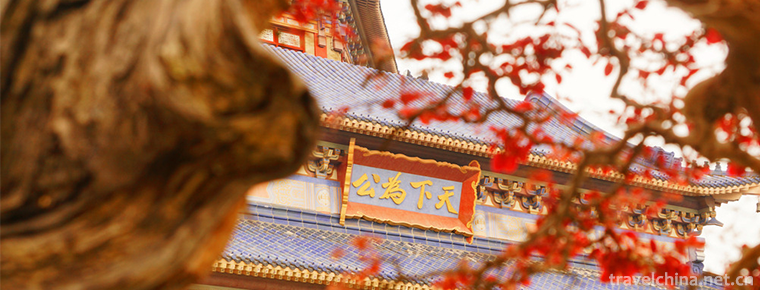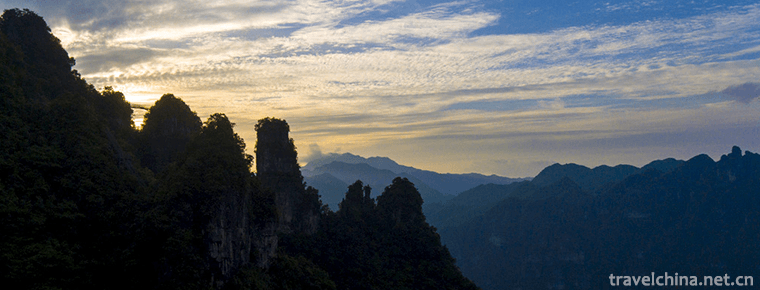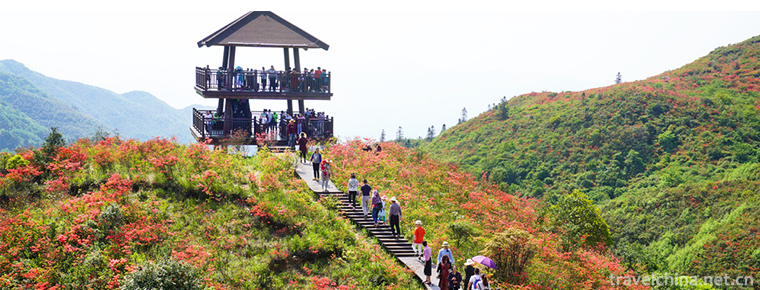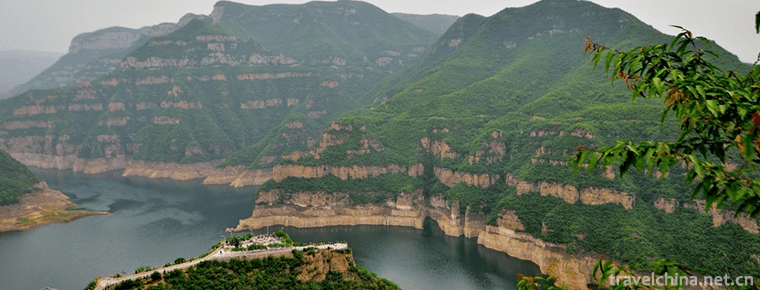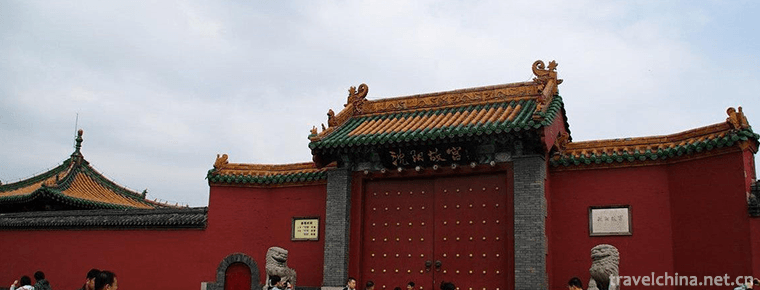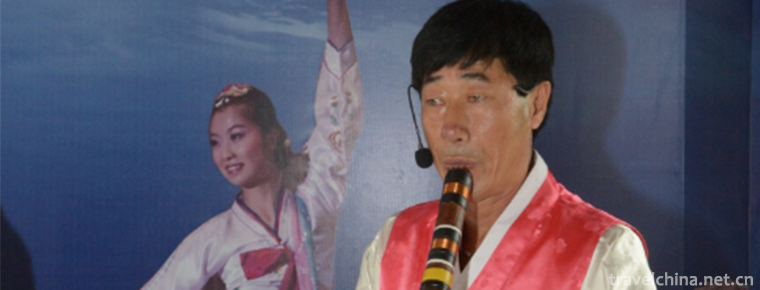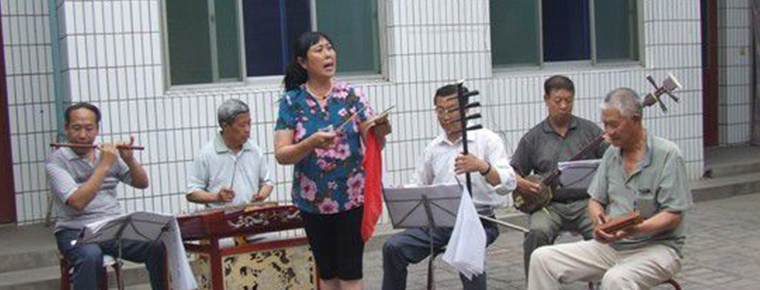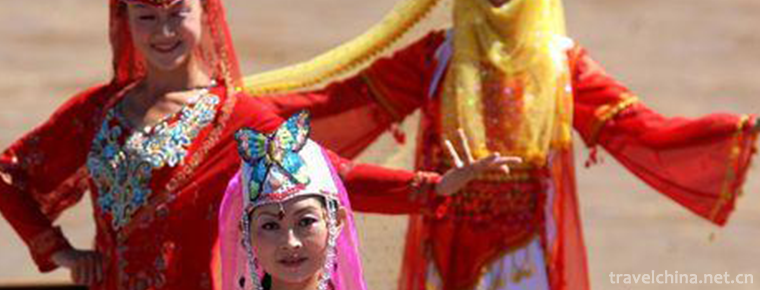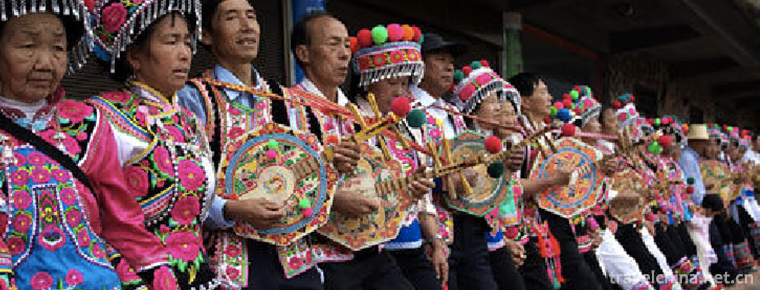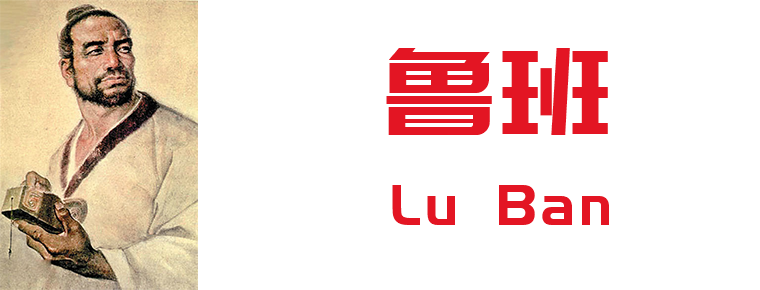Youyang Folk Songs
Youyang Folk Songs
Youyang folk song is a rich and colorful folk culture created and accumulated by the Tujia, Miao and Han people in Youyang Tujia and Miao Autonomous County of Chongqing in the long practice of production and life. Folk songs are one of them.
On June 7, 2008, the Youyang Folk Song declared by Youyang Tujia and Miao Autonomous County of Chongqing was listed in the second batch of national intangible cultural heritage list with the approval of the State Council.
Youyang Folk Song is the product of the integration and evolution of Wuling Mountain's unique geographical environment and Miao, Han and Tujia cultures. It can be traced back to the ancient times of Bayu Song and Dance, and now excavates about 1700 pieces. Representatives of the repertoire are "Don't worry about coming, don't worry about it", "The sun has gone to the slope and the back of the cool", "Wood Leaf Love Song", "This side of the ridge to that side of the beam" and so on. Because Tujia people only have language and no words, Youyang folk songs carry the history of Youyang, astronomy and geography, customs and customs, knowledge and skills, moral and ethics, which are passed down from generation to generation, providing information for the study of various disciplines.
historical origin
Youyang Autonomous County is the township of Tujia Waving Dance in China . From 2014 to 2016, "the township of Chinese folk culture and art (waving dance)", it is the core area of Tujia and Miao cultural and ecological protection area in Wuling Mountains (southeast Chongqing). There are 3 National non-heritage projects, 14 municipal non-heritage projects, 198 county-level non-heritage projects and 37 national and municipal "non-heritage" successors. There are two municipal non-hereditary schools (Youyang No. 4 Middle School and Keda Xinxi Primary School) and two municipal non-heritage productive protection bases (Lidu Cultural Communication Co., Ltd., Youyang Ziyue Miao Cultural Communication Co., Ltd.). The above data ranked first among the districts and counties in southeastern Chongqing. There are two municipal non-heritage production protection bases and two municipal non-heritage education inheritance bases. There are 122 cultural relics protection units at all levels in the county. Among them, there are 2 state-level key cultural relics protection units and 12 municipal cultural relics protection units with 23 sites. There are one famous historical and cultural town in China, two famous historical and cultural towns in Chongqing and one famous historical and cultural village in China.
Folk ballad is one of the oldest artistic creations of human beings. It came into being in ancient times with the voice of labor. Her birth has profound historical and cultural connotations. It can be said that ballads and labor are twins. "Poetry Preface" cloud: "Poets, where aspiration is also, in the heart for aspiration, speech for poetry, emotions in the form of words, inadequate words, so lament. The shortage of sighing, therefore singing, singing inadequacies, do not know the foot of the dance of the hand. This passage vividly illustrates the origin of human's first song and dance.
Youyang has a simple folk custom and profound cultural connotation. Folk songs are a popular art form among people of all nationalities. They are evident in festivals, weddings, funerals and other activities. Therefore, Youyang Prefecture chronicle has a record of "the native people worship gods by singing and dancing in the face of bonfires". Youyang is located in the Youxi area, which is the first of the ancient five streams. It belongs to the primitive tribe of Jiuxi and Shiandong. Therefore, the original Youyang folk songs have strong nationality and originality. Historically, at least two major incidents have changed the original style of Youyang folk songs. First, in the Southern Song Dynasty, in order to suppress Jintou Monk Uprising, Ran Shouzhong led his troops to Youping rebellion, and then he defended Youyang and inherited from Ran to Zhizhou, which was the beginning of the Tusi system in Youyang. Because of its Bajun nationality, it was given to the people of Youyang. The influence of "Ba Yin" was imported into the song, which changed the original folk song style of Youyang. Secondly, in 1735, in Yongzheng thirteen years of the Qing Dynasty, Youyang vigorously changed the land and returned to the mainland, abolished the ban of "Han people do not enter the country and barely enter the cave", and a large number of Han people and Han officials moved to Youyang. At the same time, a large number of Han cultures were introduced to make Han people's songs. Integrating with Youyang's original folk songs, it basically forms the basic structure of Youyang's folk songs nowadays. In addition, Youyang has a vast territory, complex terrain, and borders Hunan, Hubei, Guizhou and other provinces. The inheritance of Youyang folk songs has also formed a complex situation of "you have me, I have you".
artistic characteristics
Youyang folk song is rooted in the deep fertile soil of Youyang. Folk song is a voice from the hearts of the people. It has deep and sincere feelings and vivid artistic expression. It has strong artistic appeal through the spread, elimination and processing of thousands of people. From the lyrics, the artistic feelings in Youyang folk songs are not only sincere, but also profound. As the people are most familiar with life and have a profound experience and understanding of life, they can show the essence of life in folk songs. Their artistic generalization is amazing. For example, "Seeing the sun going down, my sister and I sing a mountain song, rubbing the roots of trees and vines, hanging the"in-the-sun"vines and"in-the-sun"vines. ” The use of the word "hanging" has profound implications and a pun, which contains many inner feelings of love between men and women. From the melody point of view, Youyang folk songs have many kinds, rich, beautiful and fluent tunes. Most of them are free-style folk songs and minor tunes, mainly in palace mode, levy mode and feather mode. Their melodic structure mostly belongs to the category of national and folk five-tone mode, mainly in single-segment style. In some "labor slogans", there will be some irregular"harmony structure. After listening, it feels very friendly.
Youyang folk song is a distinctive folk art form both in artistic content and in artistic form. It is deep, simple, short, lively, vivid, vivid, clear in image, natural in rhyme, simple, vigorous and fresh in style, rich in artistic appeal and imagination. In the practice of creating history and changing nature, Youyang folk songs will play an important role that can not be ignored.
Art Categories
Labor Song
Labor song is a folk song sung in the process of labor production, which can be divided into two categories: labor folk song and labor chant. Most of them are used to express the bitterness and joy in labor, unify labor actions, stimulate people's interest in labor, and also to impart labor experience, hoping that the weather will be favorable and the harvest will be good. The lyrics of labor songs are long or short, generally 4 to 8 sentences, each 5 or 7 words, rhyme, mostly solo, duet and lead the crowd, without any instrument accompaniment, and sing along. Especially the "grass Gong and drum" is worth mentioning. Every weeding season, families change their jobs and help each other. They often gather dozens of people to do collective work. They choose two singers to stand in the corner of the field, one beats gongs, one beats drums, while singing, and use drums and singing to unify labor movements. The scene is very warm. The lyrics of "Lao Cao Gong Gu" are long and rich in content, involving historical stories, folklore, production knowledge and labor scenes.
love sings
It mainly reflects the sincere and courageous pursuit of love by young men and women. It occupies a large part in Youyang folk songs. The content is mostly about expressing the feelings of pursuit, first love, passionate love, separation and acacia. The lyrics are generally four sentences, mostly using analogy and affection. It can be divided into solo singing, duet singing and question-and-answer singing. For example, a popular "Wood Leaf Love Song" in Youyang was sung by women, "Wood Leaves in the mountains are piled up, because Xiaolang can't blow, when they blow wood leaves, they only use wood leaves without matchmaker." Male singer "planting buckwheat in high mountains does not need gray, brothers and sisters love each other without matchmaker, use gray to pour buckwheat, use matchmaker to provoke right and wrong..." Three words and two words express the young men and women's pursuit of pure love and their eagerness to get rid of the feudal bondage.
Love Song
It is the leisure and leisurely, expressing and singing, or pan-song dialogue, or humorous satire, self-pleasure, these leisurely folk songs, full of life, interesting, fascinating, showing the lively and cheerful optimism of the Tujia, Miao and Han peoples. Among them, the famous ones are "Pange" and "Liar Song". For example: "I never sing a lie song, you see the wind blowing rock (stone) head rolling up the hill, see cows laying eggs in the morning, see horses nesting in the dark."
Bitter love song
Historically, the Tujia, Miao and Han peoples in Youyang suffered from natural and man-made disasters, extravagant levies, land grabbing and money-raising under the long-term feudal rule and national oppression, which is a real suffering. The suffering people, often touching the scenery, singing songs, singing endless bitterness with grief and grief, concentrate on reflecting the oppressed and exploited miserable life of the Tujia, Miao and Han peoples. As a result, bitter love songs have become an important part of Youyang folk songs. Such as: "Singing to sing bitter love songs, Tujia generations suffer a lot, a bitter song and a tear, the song did not start to shed tears first. "
Wedding song
On the eve of her marriage, the bride weeps and marries. The main objects of her marriage are direct blood relatives and in-laws. These relatives, women, will also go to "accompany crying" at that time. Whether the bride is crying or the relatives are crying, most of them are ready-made lyrics and impromptu songs. Such as crying for parents, uncles, brothers and sisters, matchmakers, combing hair, resigning ancestors, going to the sedan chair and so on. The lyrics are usually seven-character sentences, rhyming, and the number of sentences varies. The melody is melodious and touching. In addition to crying about divorce, there is also a strong resistance to the feudal marriage system and so on.
Red Army Song
In June 1934, when Comrade He Long led the Red Army into Nanyaojie Township of Youyang County and established a revolutionary base area, the people of all ethnic groups in Youyang rose up to join the revolution and actively participated in the Red Army and guerrillas, thus the revolutionary folk songs flourished. Everywhere the base area or the Red Army went, there were many rich Red Army ballads, which concentrated on reflecting the strong desire of the masses of laborious people that the sun came out in the sky red, carrying darts and Helong, the stars would follow the moon, and the poor would not be poor any more.
New Folk Songs
Youyang people of all nationalities, under the leadership of the Communist Party of China, have seen, heard, felt, thought and created a folk song with the spirit of the times in the socialist construction. It still uses traditional folk songs, eulogizes the Party's policies and achievements in building, as well as the earth-shaking changes in the vast countryside, which stimulates the enthusiasm and ambition of the people of all nationalities and expresses their determination to strive for socialist construction. For example: "The red sun shines brightly in the east, the people have the Communist Party, and they are completely liberated and turned over." "
Inheritance Significance
Youyang folk song is a living fossil of national history. Youyang, as the gathering place of Tujia and Miao nationalities, has rich national culture and unique national customs. It has attracted much attention in history and culture and is of great significance for its inheritance.

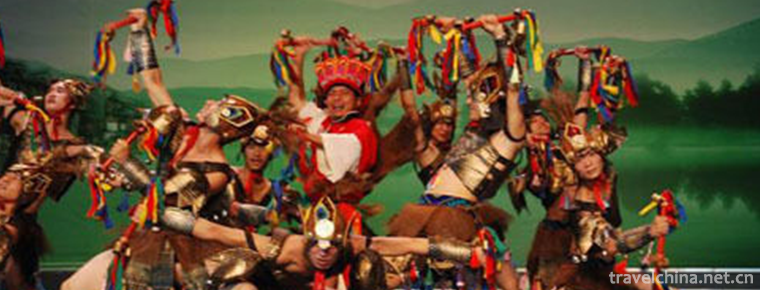
-
Dazhao Temple Scenic Area in Lhasa
Dazhao Temple, also known as "Zula Kang" and "Jue Kang" (Tibetan meaning for Buddhist temple), is located in the center of the old city of Lhasa. It is a Tibetan Buddhist temple bu.
Views: 123 Time 2018-12-12 -
Sun Yatsen Memorial Hall
Zhongshan Memorial Hall is located in Dongfeng Middle Road, Yuexiu District, Guangzhou City, Guangdong Province. It was built by the people of Guangzhou and overseas Chinese to commemorate Dr. Sun Yat.
Views: 148 Time 2018-12-22 -
Chaibuxi Canyon Scenic Area
Chaibuxi Canyon Scenic Area is located in the eastern part of Wufeng Tujia Autonomous County, with Wulingyuan in the South and Qingjiang River in the north. Zhangjiajie belongs to Wuling Mountains..
Views: 216 Time 2019-01-04 -
Daweishan National Forest Park
Dawei Mountain is located in the boundary between Hunan and Jiangxi Province, the hinterland of Lianyun Mountains, the East is Tonggu County under the jurisdiction of Yichun City, Jiangxi Province.
Views: 125 Time 2019-01-07 -
Scenic Spots of the Three Gorges of the Yellow River
The Three Gorges Scenic Area of the Yellow River, the national AAAA-level tourist attraction, the home of Chinese dinosaurs, painted pottery, flowers and Nuo culture..
Views: 147 Time 2019-01-18 -
Shenyang Palace Museum
The Shenyang Palace Museum, originally a royal palace built and used in the early Qing Dynasty, was built in 1625 (five years from tomorrow, ten years after the fate of the golden emperor)..
Views: 114 Time 2019-02-08 -
Korean Dongxiao Music
The Koguryo History Music Records records that Dongxiao belonged to the musical instruments of the Tang Dynasty in China. During the period of Shizong in the Li Dynasty.
Views: 126 Time 2019-04-16 -
Quwoqin Books
Quwo Qinshu is a kind of local traditional folk art form which was formed and mainly popular in Quwo County in the south of Shanxi Province and its adjacent areas of Shanxi, Shanxi and Henan provinces.
Views: 313 Time 2019-06-11 -
Salar Folk Songs
There are many kinds of Salar folk songs. In the course of long-term historical development, they have formed colorful and distinctive musical forms and singing styles. Salar folk songs keep the ancie.
Views: 154 Time 2019-06-12 -
Left Foot Dance of Yi Nationality
The left foot dance of the Yi people, which is called "Gouzha" in the Yi language, falls to the left foot. Dao Guangnian's Dingyuan County Chronicle says, "It's called falling on the le.
Views: 341 Time 2019-07-13 -
Gong Shuban Lu Ban
Luban (507 BC - 444 BC), Lu people in the spring and Autumn period. Ji surname , a two-character surname Name, class, person. Public transport plate , Public like , Class lose It is also known as &quo.
Views: 184 Time 2019-09-07
